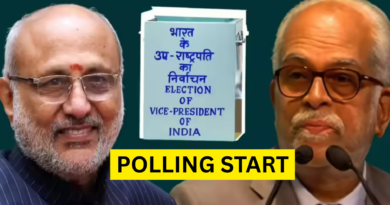Blood Money and the Case of Kerala Nurse Nimisha: A Deepening Humanitarian and Legal Crisis
What is blood money?
In Islamic law, blood money (or diyya) refers to financial compensation paid to the family of a victim in cases of murder or accidental death. It is considered a form of justice, particularly when the death penalty could otherwise be enforced under Sharia law. Blood money allows for the possibility of forgiveness by the victim’s family and often comes into play in countries like Yemen, where tribal customs and Islamic jurisprudence intersect in the legal system. However, acceptance is entirely at the discretion of the victim’s kin.
What will happen in the Nimisha Priya case?
The case of Kerala nurse Nimisha, accused of murdering her Yemeni employer Talal, has gained international attention due to both legal and humanitarian implications. Nimisha was convicted in a Yemeni court and sentenced to death, but her execution has been temporarily postponed. The postponement followed diplomatic and religious interventions, notably by Kerala cleric Abu Bakr, who has been liaising with Yemeni authorities and negotiating with Talal’s family in an attempt to secure clemency or a commuted sentence.
Talal’s family has firmly rejected the offer of blood money, a move that complicates efforts to save Nimisha. They insist that she be treated strictly as a criminal and not be extended the mercy that blood money could facilitate. This stance could stem from either emotional trauma, perceived injustice, or a strong belief in retributive justice. Their rejection also underscores the cultural and legal rigidity that sometimes accompanies such high-profile cases in Yemen.
Nimisha’s family and support groups in India argue that the full circumstances surrounding the crime have not been adequately considered. Reports suggest there may have been altercations or incidents of abuse prior to the murder, raising questions about self-defense or duress. However, the opaque nature of the Yemeni judicial process, especially for foreign nationals, has left many of these claims unexamined in the formal legal arena. This has led to increased pressure on Indian diplomatic channels to intervene more assertively.
The involvement of Kerala cleric Abu Bakr has added a layer of religious diplomacy to the situation. He is reportedly appealing to the Islamic principle of mercy and forgiveness, attempting to persuade Talal’s family to reconsider their refusal of blood money. If successful, this could open a path toward either a reduced sentence or deportation, depending on how Yemeni authorities choose to proceed. However, the talks remain fragile and are influenced by both cultural pride and the Yemeni public’s perception of justice.
Ultimately, the fate of Nimisha hangs in a delicate balance between international diplomacy, religious negotiation, and the victim family’s unyielding demand for justice. The Indian government is being urged to step up efforts while humanitarian organizations advocate for a fair reevaluation of the case. Until Talal’s family changes their position or Yemeni authorities offer an alternative legal route, Nimisha’s life remains at the mercy of a deeply complex legal and emotional crossroad.




